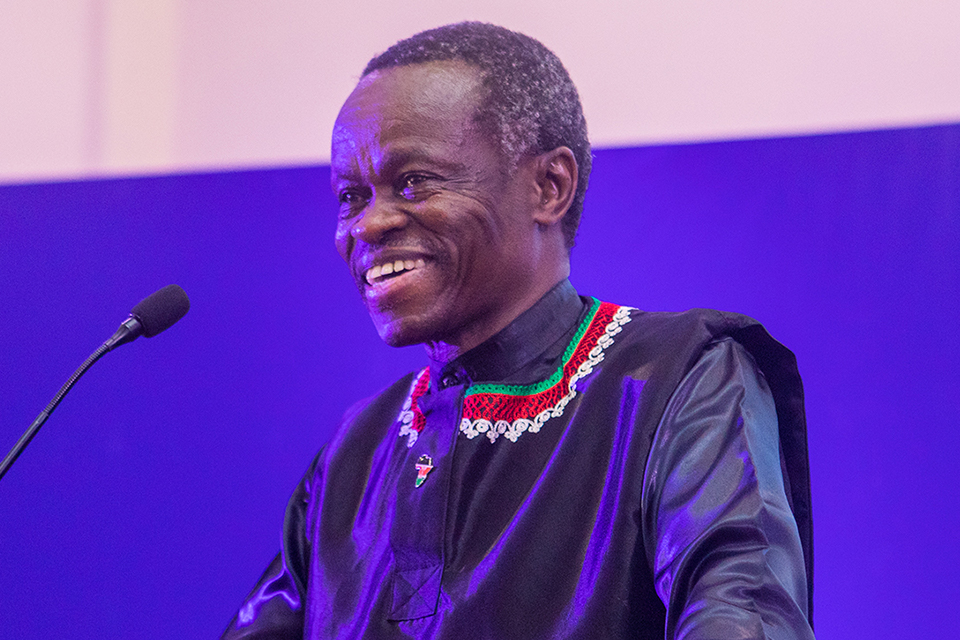Renowned Pan-Africanist and legal scholar Professor P.L.O. Lumumba delivered a fiery and thought-provoking lecture at the University of Education, Winneba (UEW), where he boldly confronted one of Africa’s most deeply rooted colonial inheritances: the language of education.
In his impassioned address, Lumumba questioned why African nations still measure intelligence through the lens of colonial languages.
He pointed out that in countries such as Denmark, Norway, Sweden, Finland, Korea, China, and Japan, education is delivered in native languages — Danish, Norwegian, Swedish, Finnish, Korean, Chinese, and Japanese respectively — yet those same countries compete confidently on the world stage.
“And then they meet the world,” he said, pausing for effect. “But you and me, here I am waxing eloquent in English.”
With a tone that struck a chord with many in the audience, Lumumba decried how African students have been subtly conditioned to believe that intelligence is only valid when expressed in English, French, or Portuguese.
“We were told that all the education we had acquired meant nothing,” he said. “So that if you are eloquent in Ga or in Twi, you are not intelligent. You are only intelligent in English. We now know that that is nonsense.”
Quoting the legendary Nigerian musician Fela Anikulapo Kuti, Lumumba invoked the iconic lyric: “Teacher, don’t teach me nonsense.”
According to him, this wasn’t just a catchy phrase — it was a serious indictment of Africa’s colonial education structures. He urged the continent to rethink the curriculum and the mediums of instruction that continue to alienate young Africans from their roots.
Going further, he criticized the colonial motives behind institutions like Achimota School in Ghana. “When the British came here and they were establishing schools across Africa, the intention was not to liberate.
It was to produce young men and women who would support the colonial empire.” These institutions, though now celebrated for producing leaders, were originally designed to manufacture custodians of the empire’s interest rather than thinkers for Africa’s future.
The speech was not just a critique, but a call to action. Lumumba emphasized the need for Africa to decolonize its education — not by merely altering textbooks, but by restoring pride in African languages and thought systems.
“Mental liberation,” he stressed, “must be at the center of our educational transformation.”
In a room full of aspiring educators and scholars, Lumumba’s words echoed beyond the lecture hall, sparking urgent questions about language, identity, and the future of African education.
For many, his lecture wasn’t just another keynote — it was a moment of truth that demanded a bold, Pan-African response.

